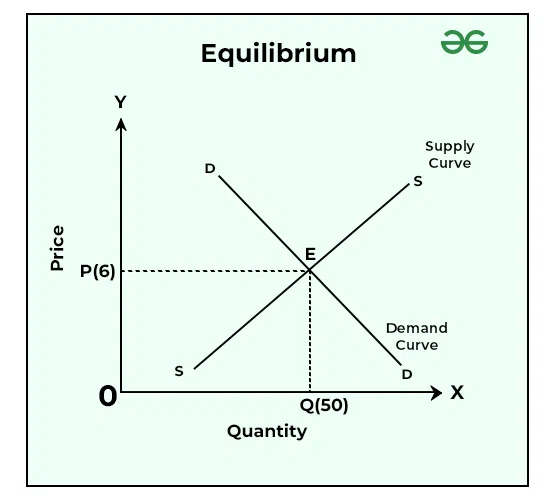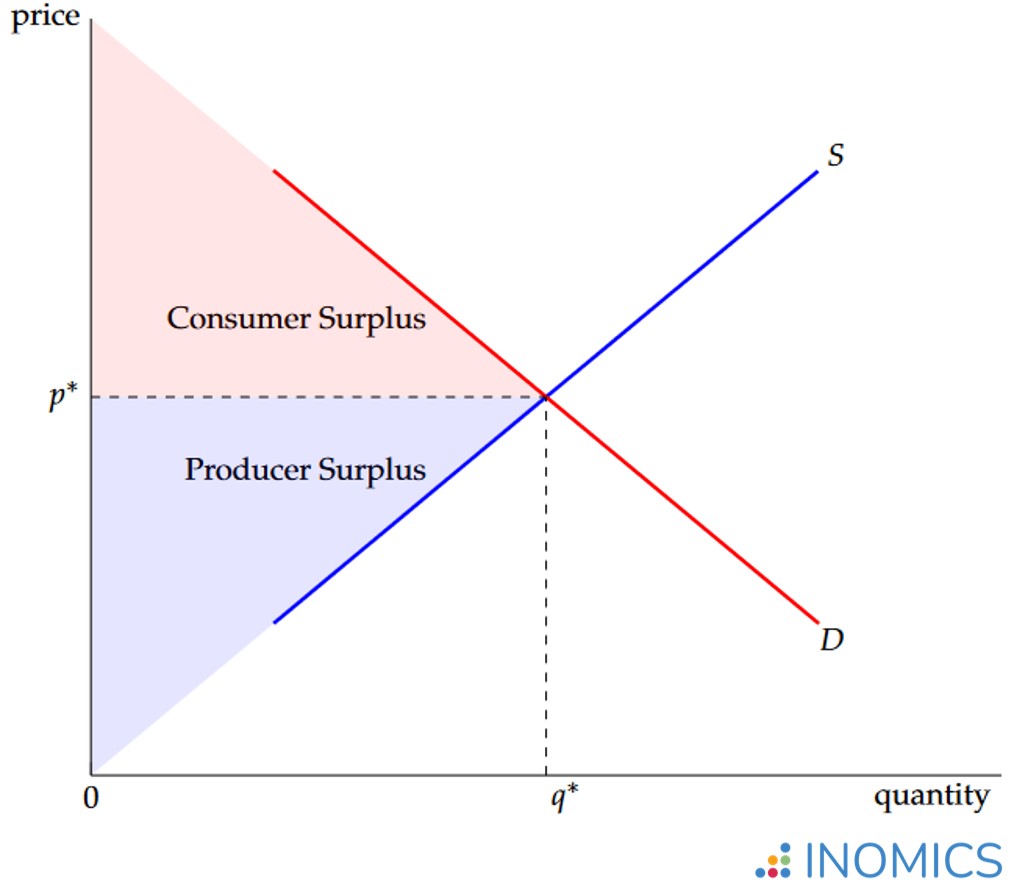2.3 Competitive Market Equilibrium
1/11
Earn XP
Description and Tags
Name | Mastery | Learn | Test | Matching | Spaced | Call with Kai |
|---|
No analytics yet
Send a link to your students to track their progress
12 Terms

Market Equilibrium
When the quantity demanded and quantity supplied are equal.
When the market “clears” occurs when the plans of the consumer is equal to the plans of the producer.
Surplus
Surplus occurs when the quantity supplied is higher than the quantity demanded in a market, which leads to the market disequilibrium
Shortage
Shortage occurs when the demand of the good is higher than the supply of the good, causing a shortage of the good, leading to market disequilibrium
Price Mechanism
How the prices are determined by the forces of supply and and demand in a competitive market
There are two main functions: price signalling function and incentive function.
Price Signalling Function
Provides an information for producer and consumers regarding to where resources are required (When there is a shortage) in markets and where resources are not (When there is a surplus) required in the market.
Rationing Scarce Resource
Occurs during shortages and surpluses. In a shortage, prices increase due to high demand, deterring some consumers. In a surplus, prices decrease as demand is low, encouraging consumers to buy more.
Consumer Surplus
Shows the difference between the highest price the consumer are willing to pay and what they have actually paid for it.
A consumer surplus is a benefit to the consumer

Producer Surplus
The difference between what the producer/seller is willing to sell and what they actually sold the good at.
Benefit to the producer
Social Surplus
The sum of producer surplus and consumer surplus at a particular price and quantity
Allocative Efficiency
A social optimal outcome where resources are allocated such that the producer surplus and consumer surplus is maximised
No one can make anyone better off without making someone worse off
When MB (Marginal benefit) = MC (Marginal cost)
Marginal Benefit
The additional amount of happiness or benefit gained from the additional assumption of one unit of the good.
Price Rationing
When the price of a good/service is allocated to limited resources. Higher price can limit the resources to individuals who are willing and able to pay.